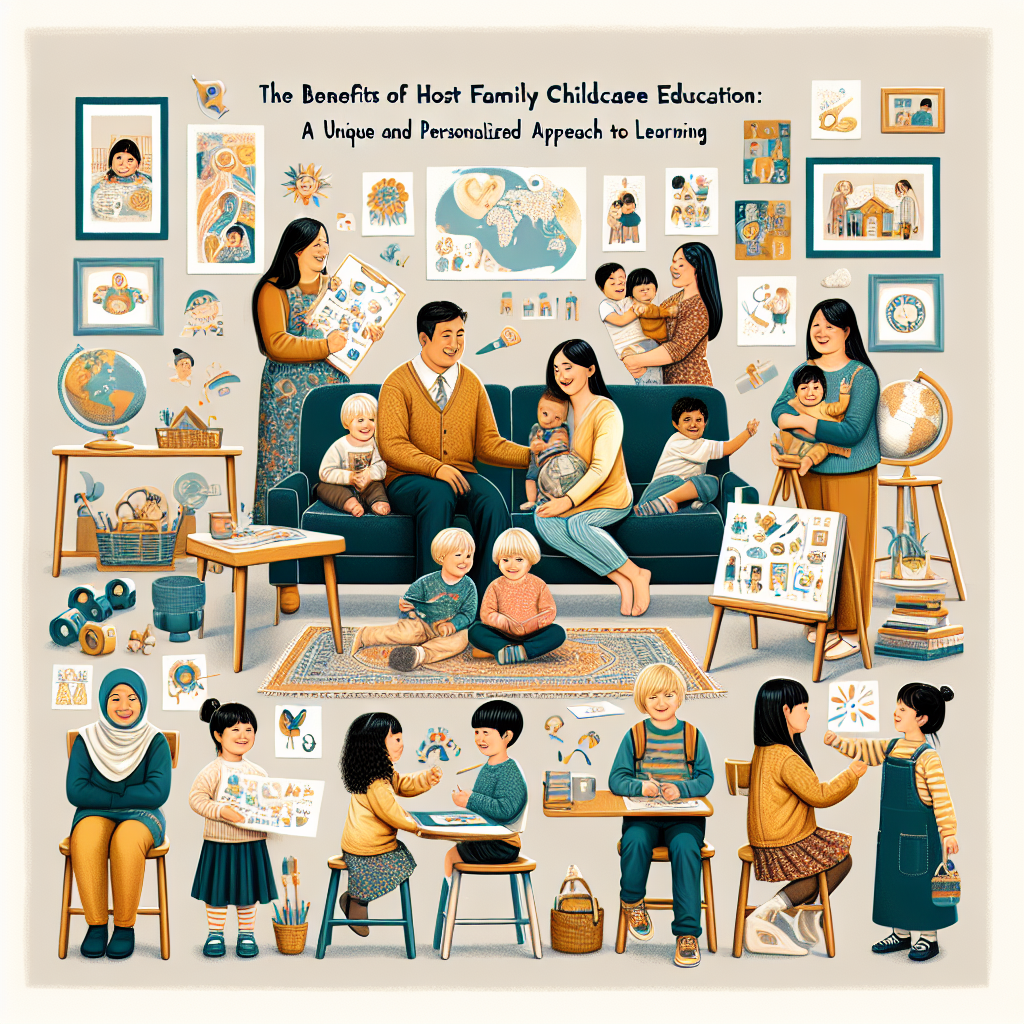When it comes to childcare education, many parents are faced with the decision of whether to enroll their child in a traditional daycare center or opt for a more personalized approach with a host family. Host family childcare education offers a unique and intimate setting for children to learn and grow, providing a range of benefits that can positively impact their development.
### Personalized Attention
One of the biggest advantages of host family childcare education is the personalized attention that each child receives. With a smaller group of children, the caregiver is able to focus more on the individual needs and interests of each child, tailoring their approach to meet their specific learning styles and preferences. This personalized attention can lead to better academic and social outcomes for children, as they receive the support and guidance they need to thrive.
### Family-like Environment
Host family childcare education provides children with a family-like environment that can help them feel safe, comfortable, and secure. Being in a home setting allows children to form close bonds with their caregiver and fellow peers, fostering a sense of community and belonging. This sense of family can help children develop social skills, build relationships, and learn how to communicate effectively with others.
### Flexible Schedule
Host family childcare education often offers more flexibility in terms of scheduling, compared to traditional daycare centers. Caregivers can work with parents to create a schedule that meets the needs of both the child and the family, making it easier to balance work, school, and other commitments. This flexibility can be especially beneficial for parents with non-traditional work hours or unpredictable schedules.
### Holistic Learning
In a host family childcare setting, children have the opportunity to learn in a holistic way, incorporating a wide range of activities and experiences into their daily routines. Caregivers can integrate educational opportunities into everyday tasks, such as cooking, gardening, and arts and crafts, giving children a well-rounded education that goes beyond academics. This hands-on approach to learning can help children develop critical thinking skills, creativity, and problem-solving abilities.
### Close Communication with Parents
Host family childcare education fosters a close and open line of communication between caregivers and parents, ensuring that everyone is on the same page when it comes to the child’s development and progress. Caregivers can provide regular updates on the child’s activities, milestones, and behavior, giving parents peace of mind and the opportunity to be actively involved in their child’s education. This close partnership between caregivers and parents can lead to better outcomes for children, as everyone works together to support their growth and learning.
In conclusion, host family childcare education offers a unique and personalized approach to learning that can benefit children in a variety of ways. From personalized attention and a family-like environment to flexibility in scheduling and holistic learning opportunities, host family childcare education provides a nurturing and supportive setting for children to thrive. Parents who are considering this option for their child should explore the benefits and advantages that host family childcare education can offer.

